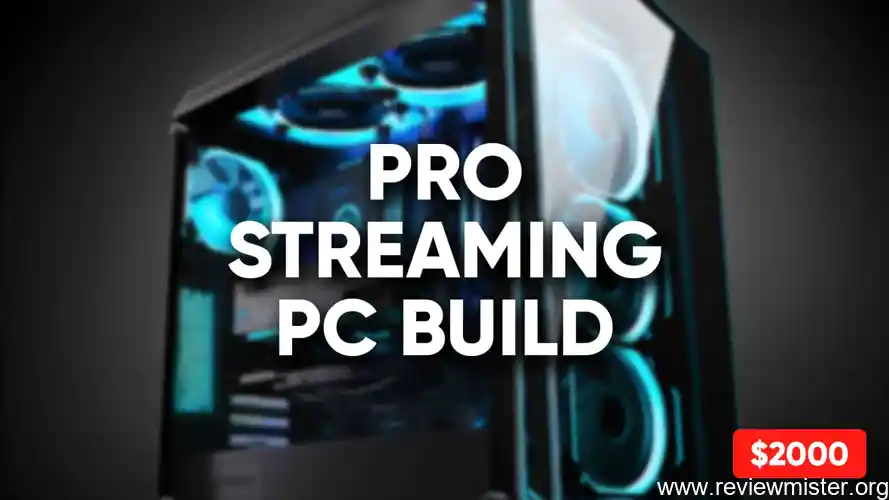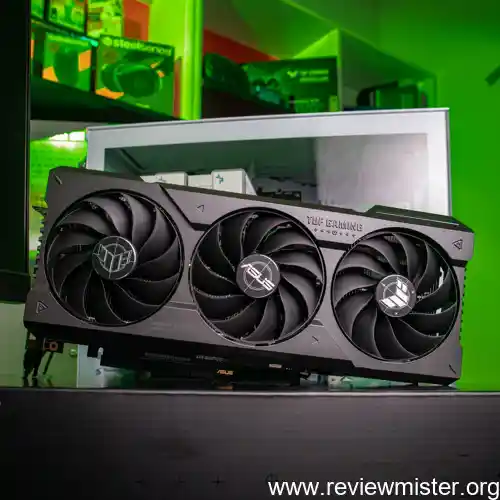If you’re planning to build a high-performance PC with the Ryzen 9 7900X processor, choosing the right motherboard is one of the most important decisions you and I will make. The synergy between your CPU and motherboard determines not only how much power you can unleash but also how future-ready and stable your entire system will be. With AMD’s latest AM5 platform, the Ryzen 9 7900X brings PCIe 5.0, DDR5 memory support, and a host of new features—but not every motherboard is created equal when it comes to compatibility, power delivery, and expansion options. As someone invested in performance, reliability, and upgradability, you need to understand which chipsets actually support the Ryzen 9 7900X, what features are essential for overclocking and connectivity, and how BIOS updates or firmware can impact your day-to-day experience. I’ll help you navigate through chipset details, must-have features, real-world compatibility issues, and future-proofing strategies, so you can confidently choose the best motherboard for your Ryzen 9 7900X build.
What is the Ryzen 9 7900X Processor?
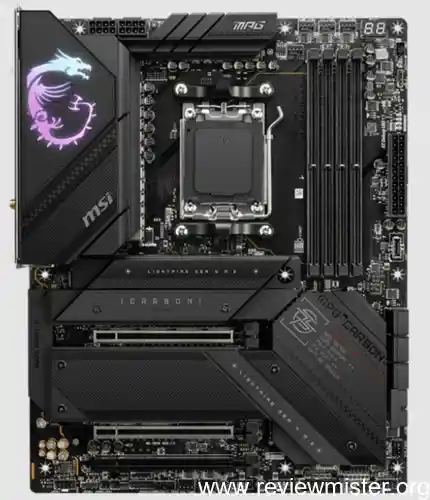
If you’re diving into building a powerhouse PC, you’ve probably heard a lot about the Ryzen 9 7900X. This chip is the heart of your system, and picking the right Ryzen 9 7900X motherboard isn’t just a box to tick—it’s what lets you actually tap into all that raw performance. You and I both want smooth multitasking, blazing gaming, and zero slowdowns, right? That’s why understanding what the Ryzen 9 7900X brings to the table is crucial before you even look at features or compatibility. It sets the stage for everything else in your build, from memory speed to graphics support.
Ryzen 9 7900X specifications and architecture
If you’re considering a Ryzen 9 7900X motherboard, you’re likely after serious performance. The Ryzen 9 7900X is a 12-core, 24-thread powerhouse built on AMD’s Zen 4 architecture, designed for users who want top-tier speed for gaming, creation, or multitasking. It plugs into the new AM5 socket, so you’ll need a compatible board to unlock its full potential. With high boost clocks and PCIe 5.0 support, this chip delivers blazing-fast responsiveness—just make sure your motherboard can handle its advanced features and power requirements, or you won’t get the most out of your new processor.
AM5 socket compatibility overview
If you’re thinking about building a powerhouse PC, the Ryzen 9 7900X processor is at the heart of many top-tier setups. This CPU packs 12 cores and 24 threads, giving you the muscle for gaming, content creation, or heavy multitasking. But here’s the catch: to really let it shine, you need the right ryzen 9 7900x motherboard. Since it uses AMD’s AM5 socket and supports the latest tech like DDR5 and PCIe 5.0, your motherboard choice directly impacts your experience. So, if you want speed and stability, matching the 7900X with a solid motherboard is a must.
Performance benchmarks from AMD and third-party labs
If you’re planning to build a powerful system with the Ryzen 9 7900X processor, it’s important to know what makes it stand out. This chip packs 12 cores and 24 threads, which means you’re getting serious multitasking power for gaming, streaming, or content creation. It’s built on AMD’s latest Zen 4 architecture and uses the new AM5 socket, so you’ll need a compatible ryzen 9 7900x motherboard to unlock its full potential. With high boost clocks and support for DDR5 memory, you’re not just getting raw speed—you’re also future-proofing your setup for upcoming tech trends.
Which Chipsets Support the Ryzen 9 7900X?
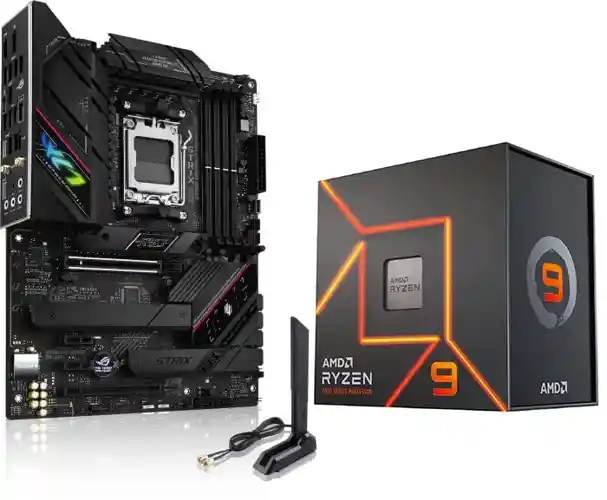
If you’re looking to pair your Ryzen 9 7900X with the right motherboard, you’ll want to focus on the AM5 platform chipsets. Not every board will give your CPU what it needs, so making the right choice matters. The main chipsets you’ll see for a Ryzen 9 7900X motherboard are X670E, X670, B650E, and B650. Each one brings its own balance of features, from cutting-edge PCIe 5.0 support to the latest DDR5 memory. You and I both know it’s easy to get lost in specs, but sticking to these chipsets means you’re building on a solid, compatible foundation.
List of AM5 chipsets: X670E, X670, B650E, B650
If you’re picking out a Ryzen 9 7900X motherboard, you’ll want to make sure it’s built on the right chipset. The main AM5 chipsets that support the Ryzen 9 7900X are X670E, X670, B650E, and B650. These chipsets let you tap into all the latest features, like PCIe 5.0 and DDR5 memory. Just remember, not every AM5 board is created equal—some offer more overclocking headroom, faster connectivity, or better expansion options. So, if you want your new CPU to shine, double-check that your chosen motherboard has the right chipset to unlock all that performance.
PCIe 5.0 and DDR5 RAM support
If you’re shopping for a Ryzen 9 7900X motherboard, you’ll need to stick with AMD’s AM5 platform. The main chipsets that support the Ryzen 9 7900X are X670E, X670, B650E, and B650. Think of these chipsets as the backbone that lets your CPU, RAM, and other components work together smoothly. X670E and X670 boards offer more PCIe 5.0 lanes and top-end features, while B650E and B650 are budget-friendlier but still deliver great performance and DDR5 support. Before buying, just make sure the board specifically lists support for Ryzen 7000 series CPUs to avoid any headaches.
Official chipset support confirmation from AMD
If you’re searching for the right Ryzen 9 7900X motherboard, you’ll want to stick with chipsets that are built for AMD’s AM5 platform. The main options you’ll come across are X670E, X670, B650E, and B650. Each of these chipsets natively supports the Ryzen 9 7900X, so you don’t have to worry about weird workarounds or compatibility headaches. You’ll get access to PCIe 5.0, DDR5 memory, and all the latest connectivity. Just make sure you’re not eyeing any older AM4 boards—they simply won’t work with this CPU. Stick to these AM5 chipsets and you’re golden.
What Features to Look for in a Motherboard for Ryzen 9 7900X?
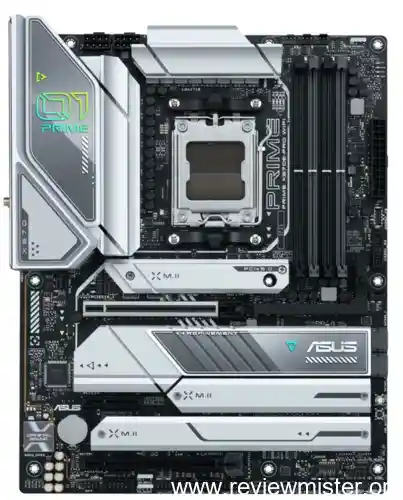
When you’re picking out a Ryzen 9 7900X motherboard, you want to make sure it’s got all the right features to get the most from your chip. Think about what really matters to you—like solid power delivery for smooth performance, support for fast DDR5 memory, and plenty of high-speed ports for your devices and storage. I always check for extras like built-in WiFi 6E or reliable 2.5G LAN, since it saves me hassle down the line. You don’t want to end up with a board that limits your upgrades or leaves you hunting for missing connections when you’re ready to build.
VRM design and power phases comparison
When you’re picking out a Ryzen 9 7900X motherboard, you want to make sure it checks all the right boxes for your needs. I always look for strong VRM design for stable power delivery, especially if you’re planning to overclock. You’ll also want to check memory support—not just the speeds, but how well the board handles DDR5 overclocking. For ports, I pay attention to USB options, M.2 slots for fast storage, and enough PCIe lanes for graphics cards or extra add-ons. Don’t forget networking; WiFi 6E and 2.5G LAN can really future-proof your setup and keep things running smoothly.
Memory overclocking capabilities and supported speeds
When you’re picking out a Ryzen 9 7900X motherboard, you want to make sure it’s not just a good fit, but the right fit for how you plan to use your PC. I always look at the VRM design first—solid power delivery means you won’t have to worry about stability when you’re pushing that CPU. Next, double-check support for fast DDR5 memory and plenty of M.2 slots if you’re like me and love speedy storage. Don’t forget about connectivity, either; features like WiFi 6E, 2.5G LAN, and enough USB ports make everyday use smoother. Basically, you want a board that matches your ambitions.
USB, M.2, and expansion slot breakdown
When you’re picking out a Ryzen 9 7900X motherboard, you want to make sure it can keep up with your processor’s speed and features. I always check for a strong VRM setup since it’s like the power backbone for stable performance, especially if you’re into overclocking. Don’t forget about memory support—look for boards that handle high-speed DDR5 RAM so you’re not left behind. You’ll also want plenty of USB ports, fast M.2 slots for your SSDs, and solid network options like WiFi 6E and 2.5G LAN. It’s all about finding the right mix for your needs and future upgrades.
Networking: WiFi 6E and 2.5G LAN inclusion rates
When you’re picking out a Ryzen 9 7900X motherboard, you want to make sure it brings more than just the basics to the table. Look for strong VRM design so your CPU gets steady power, especially if you plan to overclock. Check for fast DDR5 memory support and multiple M.2 slots for speedy storage. I always like having plenty of USB ports and at least 2.5G LAN or WiFi 6E for fast networking—future-proofing matters! Don’t forget to think about cooling support and easy BIOS updates, too. The right features can make your whole build smoother and more reliable.
How Does BIOS Compatibility Affect Ryzen 9 7900X Motherboards?
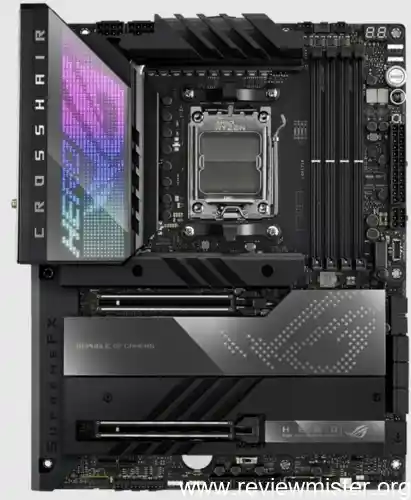
When you’re picking out a Ryzen 9 7900X motherboard, BIOS compatibility is something you really need to pay attention to. If the BIOS isn’t up to date or doesn’t support your CPU out of the box, you could run into frustrating boot issues or even be stuck staring at a blank screen. I’ve seen plenty of users get tripped up by this, especially with newer chips like the 7900X and fresh AM5 boards. You and I both want a smooth setup, so making sure the motherboard’s BIOS is ready for your processor is just as important as checking specs or features.
BIOS update requirements for AM5 motherboards
When picking your Ryzen 9 7900X motherboard, you’ll want to double-check that its BIOS is up to the task. If the BIOS isn’t updated for the latest AM5 CPUs, you might run into boot issues or miss out on crucial performance tweaks. Trust me, nothing’s more frustrating than building your system only to get stuck at a black screen. Some boards offer handy features like Q-Flash or BIOS Flashback, letting you update the BIOS even without a CPU installed. So, before you buy, make sure your chosen board supports the 7900X out of the box or has an easy update path to keep things smooth.
Q-Flash, BIOS Flashback, and update methods
When you’re picking out a Ryzen 9 7900X motherboard, BIOS compatibility is something you can’t ignore. If the BIOS isn’t up to date, your shiny new CPU might not even boot, leaving you stuck at square one. I’ve seen plenty of folks run into issues where they need to update the BIOS just to get things working, sometimes even before they can install Windows. Some boards make this easy with features like Q-Flash or BIOS Flashback, letting you update without a CPU installed. So, before you buy, double-check if your motherboard supports the 7900X out of the box, or be ready for a quick BIOS update.
Manufacturer BIOS release timelines and statistics
When you’re picking out a Ryzen 9 7900X motherboard, BIOS compatibility is one of those things you can’t ignore. If the BIOS isn’t up to date, your shiny new CPU might not even boot, or you could run into weird glitches and stability problems. It’s a bit like trying to run the latest apps on an ancient phone—they just won’t work right! Before you buy, check if the board supports the 7900X out of the box or if you’ll need to update the BIOS first. It saves you a lot of frustration and ensures your build actually fires up on the first try.
What Are Top Motherboard Models for Ryzen 9 7900X?
When you’re picking out a Ryzen 9 7900X motherboard, it’s easy to get lost in a sea of options—trust me, I’ve been there. You’ll come across big names like ASUS ROG, MSI MEG, Gigabyte AORUS, and ASRock, each offering their own flavors with different features, layouts, and sizes like ATX, Micro-ATX, and Mini-ITX. The right board can make your build feel like a high-performance machine or a headache, depending on what you choose. If you want reliability, smooth performance, and future upgrades to be a breeze, it’s worth digging into the most popular models before you make your decision.
Comparison of ASUS ROG, MSI MEG, Gigabyte AORUS, and ASRock models
If you’re picking out a Ryzen 9 7900X motherboard, you’ve got some standout options. The ASUS ROG Crosshair and Strix series, MSI MEG and MPG lines, Gigabyte AORUS Master, and ASRock Taichi are names you’ll see again and again, thanks to their strong VRMs, great cooling, and reliable BIOS support. You can go big with a full ATX for max features, or grab a Mini-ITX if you want something compact without losing out on power. User ratings from places like Tom’s Hardware highlight these boards for stability and low failure rates, so you and I can trust them to handle the 7900X’s muscle.
Form factor options: ATX, Micro-ATX, Mini-ITX
If you’re searching for the best Ryzen 9 7900X motherboard, you’ll find a handful of standout options that consistently top the charts. Models like the ASUS ROG Crosshair X670E Hero, MSI MEG X670E ACE, Gigabyte X670E AORUS Master, and ASRock X670E Taichi are crowd favorites thanks to their strong VRM setups, robust build quality, and excellent feature sets. Whether you prefer a full-size ATX board for max expansion or a compact Mini-ITX for a sleek build, these brands cover all bases. User reviews and hardware surveys show these models lead in reliability and performance, so you can’t go wrong picking from this lineup.
User ratings and failure rates from Tom’s Hardware survey 2023
When you’re hunting for the right Ryzen 9 7900X motherboard, you’ll quickly notice a few names dominating the conversation: ASUS ROG, MSI MEG, Gigabyte AORUS, and ASRock. These brands offer models packed with robust VRMs, advanced cooling, and future-ready connectivity. Whether you’re after a full-size ATX board for maximum expansion or need something more compact like Micro-ATX or Mini-ITX, there’s a solid option for every setup. User reviews often highlight reliability and feature sets, so I always recommend checking feedback and real-world failure rates before you make your pick. The right choice can really help you squeeze every drop of performance from your 7900X.
How Does Motherboard Selection Impact System Performance?
When you’re picking out a Ryzen 9 7900X motherboard, you’re not just choosing a place to plug in your CPU—you’re deciding how well your system will actually run. The right board can mean cooler VRMs, smoother memory speeds, and enough PCIe lanes to handle the fastest SSDs and GPUs without bottlenecks. On the flip side, a bad choice might throttle your processor or limit your upgrade options. I’ve seen firsthand how motherboard features like power delivery and component layout make a real difference, especially if you’re aiming for stable overclocks or high-end graphics cards. Your choice here truly impacts every part of your build’s performance.
Impact of VRM temperatures on CPU stability
When you’re picking a Ryzen 9 7900X motherboard, your choice directly shapes how well your whole system performs. The right board with solid VRMs keeps your CPU cool and stable, even during intense gaming or multitasking. You’ll notice the difference with memory speed and latency too—some boards handle faster DDR5 RAM and tight timings better than others, which means snappier response times for you. And if you plan to run high-end GPUs or blazing-fast SSDs, the motherboard’s PCIe support becomes a game-changer. In short, your motherboard isn’t just a foundation—it’s the launchpad for everything your 7900X can really do.
Memory latency differences by motherboard model
When you’re picking a Ryzen 9 7900X motherboard, it’s not just about ticking boxes for compatibility—it’s about squeezing every drop of performance from your system. A robust VRM setup helps your processor stay cool and stable, especially if you like to push your CPU with demanding tasks or overclocking. The right board also lets you take full advantage of high-speed DDR5 RAM, fast PCIe 5.0 SSDs, and top-tier graphics cards without bottlenecks. If you choose wisely, you’ll notice smoother multitasking, faster load times, and more consistent frame rates. Your motherboard really sets the stage for how far your Ryzen 9 7900X can go.
PCIe bandwidth utilization with RTX 4090 and RX 7900 XTX
When you’re picking a Ryzen 9 7900X motherboard, you’re not just choosing a place to plug in your CPU—you’re setting the stage for how well your whole system performs. The right board means better VRM cooling, which helps your processor run stable even when you’re pushing it hard. Fast memory support and solid PCIe lanes keep your graphics card and storage running at full speed, making everything from gaming to multitasking smoother. If you skimp on motherboard quality, you might find your system bottlenecked, or even running hotter and less reliably than you’d expect with such a powerful chip.
What Are Common Compatibility Issues with Ryzen 9 7900X Motherboards?
When you’re picking out a Ryzen 9 7900X motherboard, you and I both know that compatibility headaches can really ruin the fun. Sometimes, your shiny new RAM just won’t boot, or you might run into annoying BIOS bugs that leave you scratching your head. Plus, not every cooler fits the AM5 socket perfectly, which can be a pain if you’re upgrading from an older build. Firmware updates and memory support lists are crucial here—if we skip checking those, we might end up with a system that just won’t play nice out of the box. Trust me, it pays to double-check those details before you commit.
RAM QVL list and boot issues
When you’re picking a Ryzen 9 7900X motherboard, there are some real-world headaches you might run into. First off, not every RAM kit on the market is guaranteed to play nice—always double-check your board’s QVL (Qualified Vendor List) to avoid those frustrating boot loops. Cooling can throw you a curveball too, since some older AM4 coolers don’t line up perfectly with the new AM5 socket. Plus, motherboard BIOS bugs or firmware glitches sometimes pop up, which means you might be waiting for a patch just to get things running smoothly. It’s a good idea to check user forums for any red flags before you buy.
Cooling solution mounting for AM5 socket
When you’re picking out a Ryzen 9 7900X motherboard, you might run into a few annoying hiccups. Maybe your RAM isn’t on the QVL (Qualified Vendor List), so it refuses to boot or acts up with random freezes. Or you could find your cooler doesn’t fit quite right on the AM5 socket, thanks to new mounting hole designs. BIOS quirks pop up too—sometimes you need an update just to get your system to post, and early firmware can be buggy with memory compatibility or USB ports. I always double-check these details before buying to avoid spending my weekend troubleshooting instead of gaming.
Firmware bugs and patch frequencies
When you’re picking out your Ryzen 9 7900X motherboard, a few common compatibility headaches can pop up. First, always double-check the RAM QVL (Qualified Vendor List)—not all DDR5 kits play nice, and using unsupported memory can lead to random boot loops or failed starts. Mounting your cooler is another thing to watch; some older AM4 coolers won’t fit the AM5 socket without an adapter, so make sure your cooling solution matches. Finally, firmware bugs can sneak in, causing USB issues or instability, so it’s smart to check for the latest BIOS updates from your motherboard’s manufacturer before you build.
How to Future-Proof a Ryzen 9 7900X Build?
When you’re picking out a Ryzen 9 7900X motherboard, thinking ahead is key if you want your system to keep up with new tech for a few years. I always ask myself: will this board handle future CPUs, faster RAM, or next-gen storage? You want something that’s not just great for today, but also ready for upgrades—maybe a Zen 5 or Zen 6 chip, or the latest PCIe 5.0 drives. It’s a bit like picking a house with extra rooms; even if you don’t need them now, you’ll be glad for the space when your needs grow.
Upgrade path for Zen 5 and Zen 6 CPUs
If you want to keep your Ryzen 9 7900X build feeling fresh for years, picking the right motherboard is key. I always look for an AM5 board that’s likely to support future Zen 5 and Zen 6 CPUs, so you’re not locked out of upgrades. Make sure your ryzen 9 7900x motherboard supports robust DDR5 memory, since faster RAM will matter more over time. You’ll also want PCIe 5.0 slots for new GPUs and blazing-fast SSDs—think of it as giving your system extra lanes on the highway. With these choices, you’ll save yourself a major headache (and cash) down the road.
DDR5 memory scaling potential
If you’re aiming to future-proof your Ryzen 9 7900X build, picking the right motherboard is key. You want a Ryzen 9 7900X motherboard that fully supports DDR5 memory, PCIe 5.0, and has enough power phases for possible next-gen CPUs like Zen 5 or even Zen 6. Look for boards with extra M.2 slots and USB ports so you’re not left wanting as new tech comes out. I always check that BIOS updates are frequent and easy to apply, since that’s what keeps your rig compatible for years. Investing a little more now means your system won’t feel dated anytime soon.
PCIe 5.0 SSD and GPU compatibility rates
If you want to make sure your Ryzen 9 7900X build stays relevant for years, picking the right motherboard is crucial. I always look for a board with solid support for future CPUs—think about Zen 5 and Zen 6 compatibility on the AM5 socket. You’ll also want a ryzen 9 7900x motherboard that handles DDR5 RAM upgrades and has extra PCIe 5.0 slots for next-gen GPUs and SSDs. Don’t forget firmware updates—manufacturers who keep their BIOS fresh will save you headaches down the line. Trust me, investing in these features now means you won’t be scrambling for upgrades later.
Q1. What motherboard is compatible with Ryzen 9 7900X?
Ans: The Ryzen 9 7900X is compatible with motherboards using the AMD AM5 socket, such as X670, X670E, B650, and B650E chipsets.
Q2. Do I need a BIOS update for Ryzen 9 7900X motherboard support?
Ans: Most new AM5 motherboards come ready for Ryzen 7000 series, but always check the manufacturer’s CPU support list for BIOS compatibility.
Q3. Does Ryzen 9 7900X support DDR4 or DDR5 RAM on motherboards?
Ans: Ryzen 9 7900X only supports DDR5 RAM on compatible AM5 motherboards.
Q4. What is the best motherboard chipset for overclocking Ryzen 9 7900X?
Ans: X670E motherboards are the top choice for overclocking and advanced features with the Ryzen 9 7900X.
Q5. Can I use my old AM4 motherboard with Ryzen 9 7900X?
Ans: No, the Ryzen 9 7900X requires a new AM5 socket motherboard and is not compatible with AM4 motherboards.

